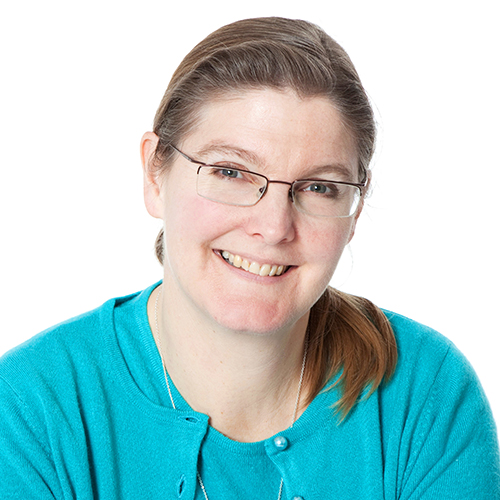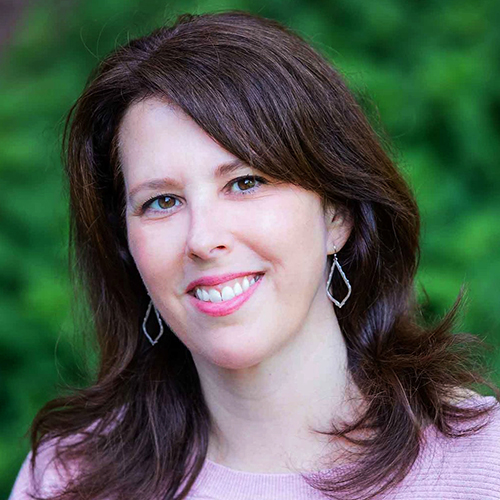 IBCLC Detailed Content Outline: Clinical Skills / Research Focused CERPs - Section VII D
IBCLC Detailed Content Outline: Clinical Skills / Research Focused CERPs - Section VII D
Access CERPs on Clinical Skills / Research for the IBCLC Detailed Content Outline recertification requirements. On-demand viewing of the latest Clinical Skills / Research focused IBCLC CERPs at your own pace.
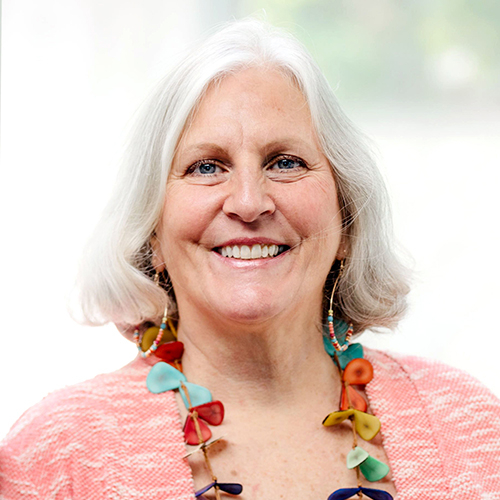
Gamechangers: New studies that will change the way we think about tongue-tie

Dr. Hazelbaker has been a therapist in private practice for over 30 years. She specializes in cross-disciplinary treatment and to that end has taken training in several modalities to best assist her clients. She is a certified Craniosacral Therapist, a Lymph Drainage Therapy practitioner, a Tummy Time™ Trainer, a Haller Method practitioner, A Pre and Perinatal Psychology Educator, a Lactation Therapist Diplomate, an International Board Certified Lactation Consultant and a fellow of the International Lactation Consultant Association.
She earned her Master’s Degree from Pacific Oaks College (Human Development specializing in Human Lactation) and her doctorate from The Union Institute and University (Psychology, specializing in Energetic and Transformational healing.)
People recognize her as an expert on infant sucking issues caused by various structural problems like torticollis, plagiocephaly, brachycephaly and tissue shock-trauma. She invented the Hazelbaker™ FingerFeeder and the Infant Breastfeeding CranioSacral Protocol™ to assist in the resolution of this type of infant sucking dysfunction.
Topic: Cranial Nerves: A Critical Component of the Process of Breastfeeding - [View Abstract]
Topic: Creating Flow: Using Lymphatic Drainage Therapy for Breastfeeding Issues - [View Abstract]
Topic: Finger Feeding: What Do We Know? What Should We Know? - [View Abstract]
Topic: Gamechangers: New studies that will change the way we think about tongue-tie - [View Abstract]
Topic: Infant Trauma: Impact on Breastfeeding - [View Abstract]
Topic: The Faux Tie: When is a "Tongue-tie" NOT a Tongue-tie? - [View Abstract]
Topic: The Impact of Bodywork on Infant Breastfeeding - [View Abstract]
Topic: What Does Torticollis Have to do with Breastfeeding? - [View Abstract]
This presentation examines several influential recent studies that will change the way we think about tongue-tie; the manner in which we examine, treat and perform therapy on babies. From the overall perspective of development, Dr. Hazelbaker looks at histology, speech development, posture, wound healing, lasers and airway integrity, citing the most exciting studies on these subjects, explaining how each will impact our philosophical, intellectual and clinical involvement with study findings. Further, Dr. Hazelbaker makes suggestions of how these various studies should guide our thinking about when and how to assess and treat tongue-tied infants.
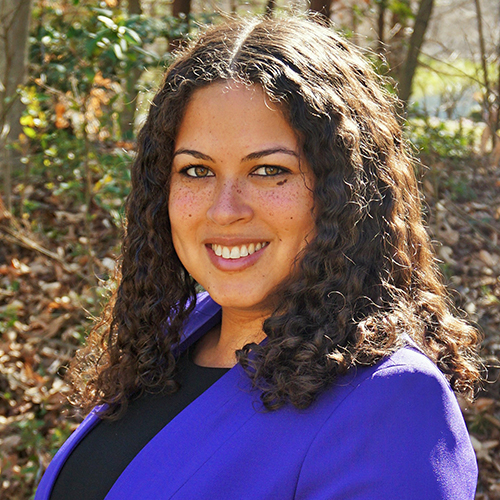

Jessica Lee is a Staff Attorney at the Center for WorkLife Law, and co-founder of the Center’s Nursing Mothers Law Project. She works to advance gender equality in the workplace and in education, and is a nationally recognized expert on discrimination related to pregnancy and breastfeeding. Lee has provided know-your-rights resources and training on workplace supports for breastfeeding to thousands of healthcare providers, public health practitioners, and employers. She also seeks to prevent discrimination by working with institutions to draft and implement family-responsive policies.
Lee’s writing has been featured in publications ranging from Harvard Business Review and The Chronicle of Higher Education to the journals Breastfeeding Medicine and Midwifery and Women’s Health. She is a co-author of the study, Exposed: Discrimination Against Breastfeeding Workers.
One of the most challenging experiences on a parent’s lactation journey is managing return to work. When lactating workers have access to both time and space for expressing breast milk, they are more likely to meet their breast/chestfeeding goals, yet many struggle to access these simple accommodations. Participants will gain an understanding of how workplace conditions influence lactation, become familiar with key legal principles protecting lactating parents in the workplace, and, learn strategies to ethically support their clients in reducing workplace barriers to continued lactation.
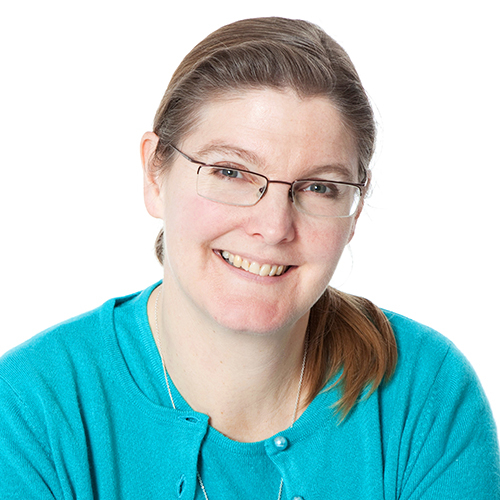

Helen Gray MPhil IBCLC is Joint Coordinator of the UK Steering Group of the World Breastfeeding Trends Initiative (WBTi). In 2017 she and Clare Meynell IBCLC jointly received the Award for Outstanding Contribution to Breastfeeding from the Lactation Consultants of Great Britain (LCGB), for leading the UK’s first WBTi assessment of infant feeding policies and programmes.
Helen is an international speaker on ethics and conflicts of interest. She represents La Leche League of Great Britain on the UK Baby Feeding Law Group, which works to bring the International Code of Marketing of Breastmilk Substitutes into UK law. She is also Policy and Advocacy Lead for Lactation Consultants of Great Britain, and previously co-chaired LCGB’s Communications Team.
Helen’s background in anthropology and human evolution has influenced her interest in how breastfeeding, and the way we nurture our babies, are influenced by both human biology and culture.
Her current advocacy focus is the need for strong policies to protect infant feeding in emergencies. She currently serves on the Advisory Panel for a London Food Resilience research project with Oxford University.
In her spare time, she can be found sculling on the River Thames.
The profession of lactation consultant has grown around the world and has evolved enormously since its inception in 1985. At first, the development of the profession provided skilled breastfeeding counsellors with a role that aligned with the medical model, provided a career pathway, and provided evidence of lactation skills and experience.
Over the years, the certification has grown and now there are over 33,000 International Board Certified Lactation Consultants© (IBCLC©) in 125 countries with the exam now offered in 17 languages. Lactation consultants are now recognised at national and global levels as providers of expert lactation care, and they work within a “landscape” of varied roles and qualifications, each of which brings their own important skill set. IBCLCs play many roles, ranging from advocate to clinical expert, from policy consultant to researcher. The profession has evolved in response to sociocultural change and global issues. One major change has been the increasing importance of technology and the internet, driven partly by the fact that the consumers of breastfeeding care are the most internet involved generation in history, with a particularly rapid transition in response to the COVID-19 pandemic. Major shifts have included the recognition of structural racism, health disparities, inequities in health care and in breastfeeding support, the importance of building a more diverse workforce, recognition of the gendered nature of lactation care and the need for inclusion for people of all genders, breastfeeding as a reproductive right and as a human right of the breastfeeding dyad, and the impact of how babies are fed on many other spheres, including climate change and public health.

Meet Them Where They Are: Applying a Multidisciplinary, Equitable and Sustainable Approach to Breastfeeding and Lactation Practice & Promotion

TaNefer is an IBCLC, Maternal Health Strategist and Healer with over 15 years of experience in supporting families through birth, breastfeeding and postpartum. She has a background in psychology and Health education with an emphasis in community health and early career experience in counseling, social services and family advocacy. She brings a wealth of knowledge and experience as she helps her clients identify their challenges and lovingly guides them through a plan to overcome them. She has the ability to work with diverse populations and tailors support to fit the needs of each unique person or group. She educates parents, families and professionals on lactation, breastfeeding and maternal healing. She is also a researcher, serving as a Community Advisory Board member to the UCSF Preterm birth initiative and is also the Community Researcher and Relations consultant to the SACRED Birth Study. She has designed, implemented and evaluated programs in maternal equity and lactation and is the creator of the "Teach me how to breastfeed" song and viral music video. TaNefer Lumukanda Camara is also a Co-founder B.L.A.C.K Course.
It’s been a decade since the Surgeon General’s call to action to support breastfeeding. While great strides have been made to improve breastfeeding rates in the US, diverging societal conditions, disparate birth outcomes and changing family dynamics have necessitated adjustment and adaptation of more inclusive and multifaceted approaches to lactation support. With up to 34% of birthing people having experienced a traumatic birth, one study has shown how the effect on breastfeeding can go in either direction. If we factor in housing instability, mental health and race/immigration status we see greater disparities and/or differing needs according to the target population. However, the paradox is that these issues are not mutually exclusive, therefore a one size fits all approach is not sufficient. The COVID-19 Pandemic shed light on pre-existing gaps and disparities in this field and forced us to reimagine what breastfeeding promotion, protection and support should and can be. Implementing a multi-disciplinary plan to approach breastfeeding and lactation should be the trend moving forward. In this presentation you will learn how to:
Identify disciplines that can collaborate with lactation specialists to support breastfeeding promotion.
Discuss challenges in supporting populations with multiple needs and high risk.
Strategize a plan for reaching marginalized communities and populations at high risk and high need for lactation support.
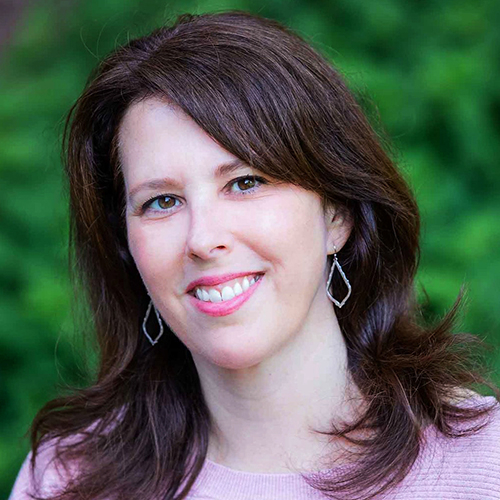
Nurturing the Future of Lactation Care: It’s up to All of Us!

Allison Walsh IBCLC LCCE FACCE is an International Board Certified Lactation Consultant (2006), Lamaze Certified Childbirth Educator (2000), and and doula (2000) in private practice in New York City. She is one of the three founders of the Lactation Learning Collective, which offers education and support to those on the pathway toward certification as International Board Certified Lactation Consultants along with families in need of lactation support. She trains childbirth educators as a Co-Director of the NYC Lamaze Childbirth Educator Program and is a past president of Lamaze. Allison has represented Lamaze International as a delegate to the United States Breastfeeding Committee since 2004, and has served in various leadership and committee roles. Allison is a member of the New York City Breastfeeding Leadership Council, the New York Lactation Consultant Association, and an active La Leche League Leader. She co-chaired the Save the Birthing Center Committee which was a group of professionals, advocates and consumers who fought valiantly but unsuccessfully to stop the closure of the Mount Sinai West (formerly Roosevelt) Birthing Center in New York City. Prior to the birth of her first child, Allison was a political consultant and community organizer. Skills from that “past life” are useful in all aspects of her work in the birth world. She is a graduate of Syracuse University and mother of three formerly breastfed children. Allison thinks that babies are the most interesting of all people and never underestimates the power of a good cup of tea, fresh air, and fresh bed linen.
The possibility of serving as a mentor can feel perfectly comfortable to some people, while overwhelming and frightening to others. This presentation will discuss the steps to becoming a mentor and fostering a productive mentoring relationship to grow the lactation care profession. Join one of the founders of NYC's Lactation Learning Collective for an in-depth look at the why’s and how’s of mentoring the next generation. Learn about IBLCE’s requirements and how to smooth the process and make it fulfilling for both mentees and mentors.
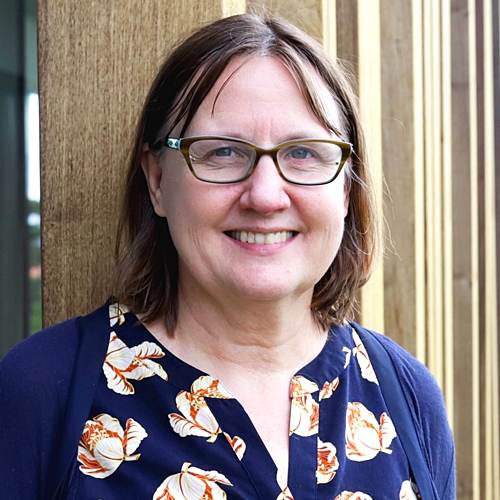
Promoting Self-Management of Breast and Nipple Pain for Women During Breastfeeding

Ruth Lucas, PhD, RNC, CLS, received her Bachelor of Science in Nursing from George Mason University (1986) and her Doctor of Philosophy of Science (2011) from the University of Illinois at Chicago. Based on 20 years of supporting women and infants to initiate breastfeeding, her research focuses on the biobehavioral mechanisms of breastfeeding, such as breast and nipple pain. Dr. Lucas and her team conducted a pilot randomized control trial (RCT) as part of the Center for Accelerating Precision Pain Self- Management (CAPPS-M) (P20NR016605). The pilot RCT tested the feasibility, acceptability, and efficacy of a breastfeeding self-management (BSM) intervention for breast and nipple pain during breastfeeding and found the BSM intervention significantly reduced breast and nipple pain and is associated with pain sensitivity polymorphisms. Her published work describes management of pain during breastfeeding, a clinical indictor of infant breastfeeding behaviors, and a biomedical device to measure breastfeeding in real time.
Topic: Promoting Self-Management of Breast and Nipple Pain for Women During Breastfeeding - [View Abstract]
Despite 90% of women experiencing breast and nipple pain during breastfeeding, mothers rarely receive adequate knowledge and skills for breastfeeding pain self-management and cease breastfeeding. Our randomized control trial (RCT) pilot study tested the feasibility, acceptability, and efficacy of a breastfeeding self-management intervention (BSM) on breast and nipple pain and breastfeeding outcomes. Sixty women were recruited after delivery and completed survey measures of pain and breastfeeding outcomes, pain sensitivity testing and a biological sample to assess genetic risk for pain at baseline. Both groups completed pain and breastfeeding outcomes surveys via texting links using REDCap 7.4. Women in the intervention group received biweekly nurse-lead texting and cloud-based educational modules addressing breast and nipple pain and breastfeeding challenges. The BSM intervention was acceptable and sustainable for 94% of the women who continued to breastfed to 6 weeks. Acute breast and nipple pain at 1 and 2 weeks were significantly reduced and was associated with pain sensitivity polymorphisms, suggesting a genetic risk profile of pain-associated breastfeeding cessation.
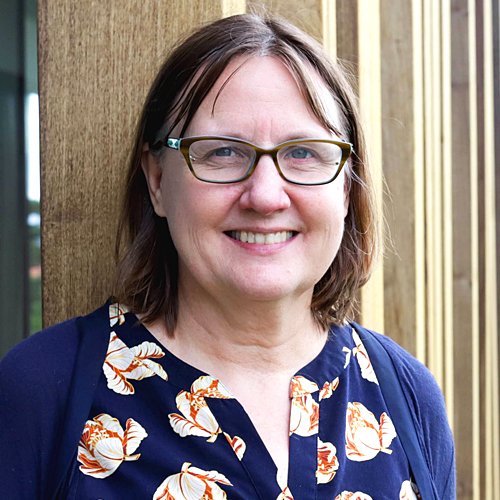
View Details / Enroll


Dr Philip Hand practices in Melbourne, Australia . His certifications include: BDS (Otago N.Z.), FICCDE LA&HA Master in Laser Dentistry (Slovenia), MSc Laser Dentistry (UCSC – Rome). He is the Secretary of the International Academy of Innovative Dentistry (IAID) and Assistant Professor UCSC-Rome. Dr. Hand is interested and practices in all fields of general dentistry. These include Implant Dentistry, Endodontics, Periodontics and Orthodontics (POS Graduate). He is a devoted proponent of the use of the dental microscope and dental lasers. He is passionate about tackling the issues and treatment for infant feeding both breast and bottle, airway health and growth and sleep from a dental perspective. He works collaboratively with lactation consultants, maternal health nurses, paediatricians, paediatric osteopaths and chiropractors in the treatment of infants in this pursuit and is actively involved in teaching the importance of this treatment for our patients from infants to adults.
This presentation will look at new research into lingual frenulum restriction and its surgical release to achieve improvement in problems with reflux, breastfeeding and pain for the breastfeeding mother. I will also expand this into restrictive tethered oral tissues (lip-tie, buccal-tie) as a whole, as this was part of my published study into the laser surgical release of restrictive tethered oral tissues on breastfeeding and Gastroesophageal Reflux Disease (GERD). Learn more about the impact of surgical release (frenotomy) of tongue- tie, lip-tie, buccal-tie on both reflux and breastfeeding outcomes for the classically recognised anterior tongue-tie and the less obvious (without functional assessment) posterior tongue-tie. Posterior tongue-tie was noted in 71% of the study cohort.
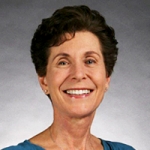
Seven Neuroprotective Core Measures: A Model for Implementing Family-Centered Developmental Care in the NICU

After raising three children as a stay-at-home mother, Dr. Phillips received a Masters degree in Developmental Psychology, became NIDCAP certified as an Infant Developmental Specialist, and then attended medical school at University of California, Davis, graduating in 2004. She completed her pediatric residency and neonatology fellowship at Loma Linda University Children's Hospital in Loma Linda, CA and is currently an attending neonatologist in the NICU at the same hospital as well as Co-Medical Director of Newborn Nursery at Loma Linda University Medical Center-Murrieta. Dr. Phillips is an International Board Certified Lactation Consultant and is a Fellow of the Academy of Breastfeeding Medicine. She is the immediate past president of the National Perinatal Association. Her primary areas of interest are mother-infant attachment, breastfeeding education and support, and Family-Centered Neuroprotective Care of premature infants in the NICU.
There is ample evidence that Family-Centered Developmental Care in the NICU results in improved neonatal and neurodevelopmental outcomes, increased family satisfaction and even enhanced employee satisfaction once the culture change has been accomplished. However, implementing the known principles of Family-Centered Developmental Care in the NICU to create those culture changes has long been a challenge. Several models of implementing developmental care have been tried and met with varying challenges and degrees of success. The Seven Neuroprotective Core Measures of Family-Centered Developmental Care in the Neonatal Integrative Developmental Care Model has been trialed in our NICU for the past three years and has proven to be effective as a tool to bring about staff buy-in and engagement in the process of implementing Family-Centered Developmental Care principles into the culture of our NICU.

View Details / Enroll

Supporting Older First-Time Mothers with Breastfeeding and Becoming a Mother: Insights for Clinical Practice

Rosann Edwards is an Assistant Professor in the Department of Nursing and Health Sciences at the University of New Brunswick Saint John, an experienced front line public health nurse, and lactation consultant. She is also a third-degree karate black belt, and mother of boys. Rosann’s research and community work focuses on breastfeeding, the transition to motherhood, maternal satisfaction with breast/infant feeding, mothering in the shelter system, and empowering vulnerable populations of women and their children. She is the co-editor of the recent Demeter Press Anthology Breasts across Motherhood: Lived Experiences and Critical Examinations.
Topic: Supporting Older First-Time Mothers with Breastfeeding and Becoming a Mother: Insights for Clinical Practice - [View Abstract]
Mothers 35 year of age or older are the fastest growing demographic of new mothers in many developed countries, & a steadily emerging global trend. The quality of a mother's breastfeeding experience has the potential to affect breastfeeding duration and factors that promote healthy maternal-infant attachment, infant growth and development, and maternal mental health. There is a lack of understanding of how older first-time mothers make decisions about breastfeeding and mothering. Learn more about new research that looked to answer the research question ‘What factors affect how first-time mothers >35 years of age make decisions about breastfeeding and the motherhood in the first six months postpartum?’ The findings provide a framework to work in partnership with older first-time mothers to enhance positive breastfeeding experiences, adaptation to motherhood and positive mental health outcomes through strategies that promote resiliency and shared decision-making around early postpartum care, and breastfeeding/infant feeding supports. Key components include helping mothers identify what satisfaction with breastfeeding is for them, encouraging increased levels of knowledge, control, trust and ownership, supporting them in redefining their core self, and providing realistic, evidence-based information.

View Details / Enroll
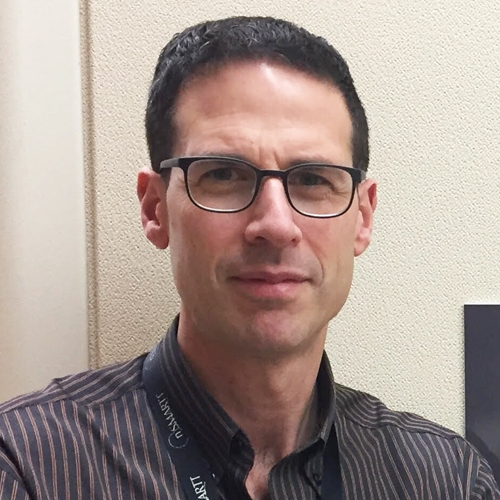

Dr. Narvey began his training in Pediatrics at the University of Manitoba in Winnipeg where he completed a year of further training in Neonatology. This was followed by two years of Neonatal fellowship at the University of Alberta in Edmonton. Afterwards he began his career as a Neonatologist in the same city and over the 6 years he spent there, his career included both clinical and administrative duties including 4 years as the Fellowship Program Director and two years as the Medical Director for a level II unit. In late 2010 he accepted a position in Winnipeg to become the Section Head of Neonatology and continues to hold this post. In 2016 he took on the additional role of Medical Director of the Child Health Transport Team. In 2015 he became a member of the Canadian Pediatric Society’s Fetus and Newborn Committee and in 2019 took over as Chair of the same. His interests predominantly lie in the use of non-invasive technology to minimize painful procedures during an infants stay in the NICU. He is active on social media and has a passion for fundraising and is an active board member of the Children’s Hospital Foundation of Manitoba.
Topic: Human Milk Diet and Fortification: Controversies and Evidence - [View Abstract]
Topic: Many Different Shades of Yellow - [View Abstract]
Topic: Respiratory Problems in the Newborn: Where Are We in 2022? - [View Abstract]
Topic: Sweet and Sour: Hypoglycemia in the Newborn - [View Abstract]
Hypoglycemia is one of the most common problems encountered by the practitioner in newborn care. How low is too low and how does the age of the patient influence these thresholds? Moreover, when a patient’s blood glucose is found to be low, what are the best steps to take in order to normalize it? This is not your usual talk on hypoglycemia but rather one that looks at the journey one center took in its quest to answer these questions. On this path we encountered some results that were definitely “sweet” and others that left a “sour” taste in our mouths. In this talk you will be follow the story of our center which produced a cautionary tale that demonstrates that you shouldn’t always believe everything you read!

View Details / Enroll






